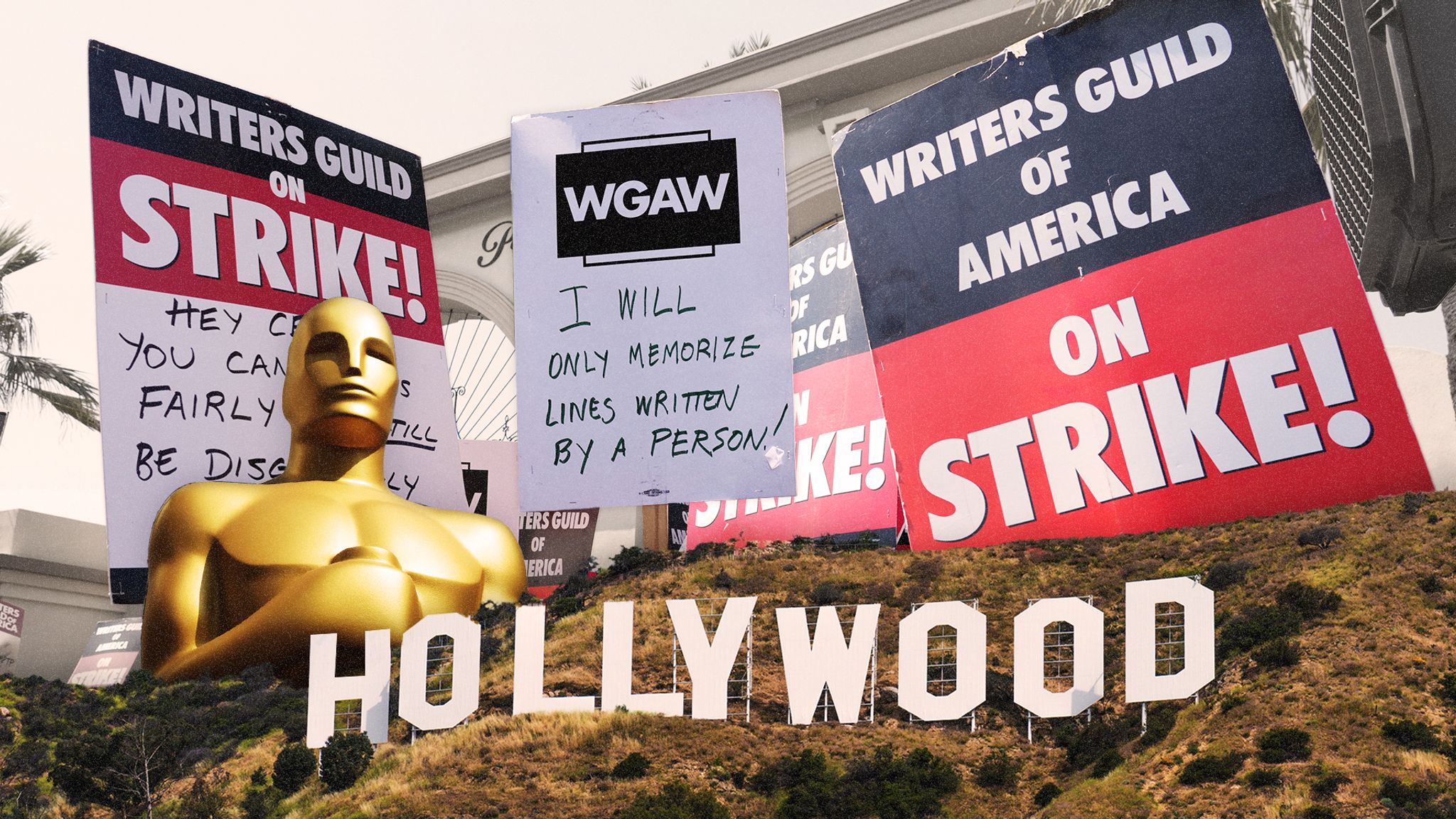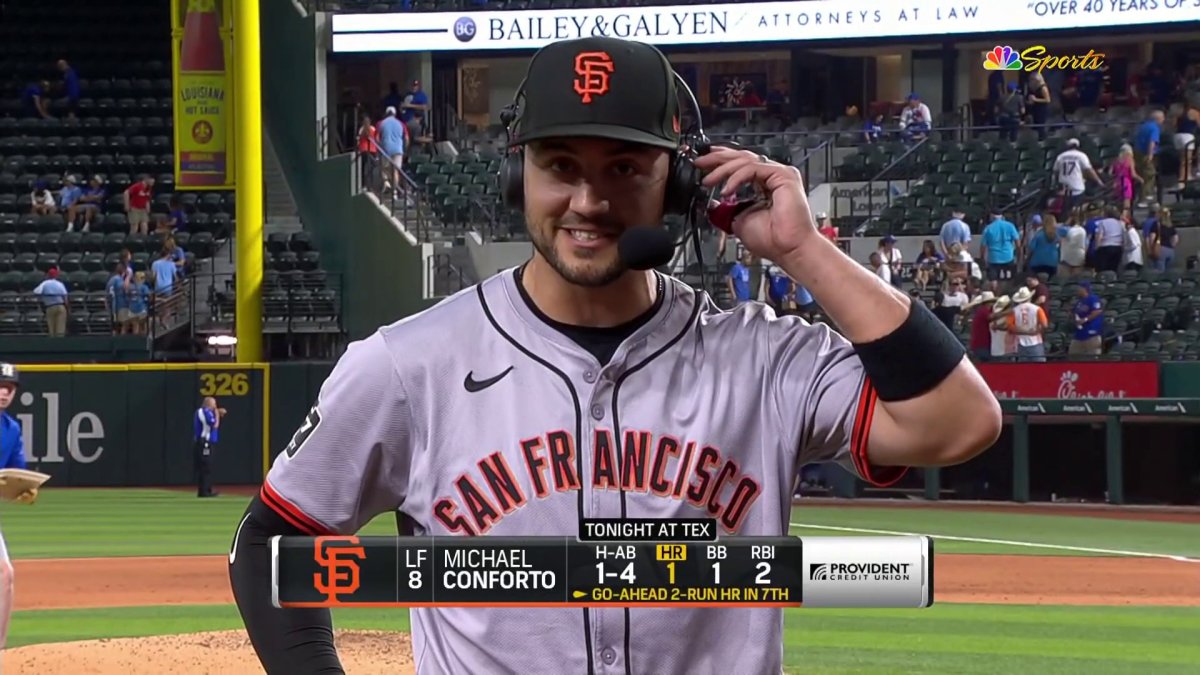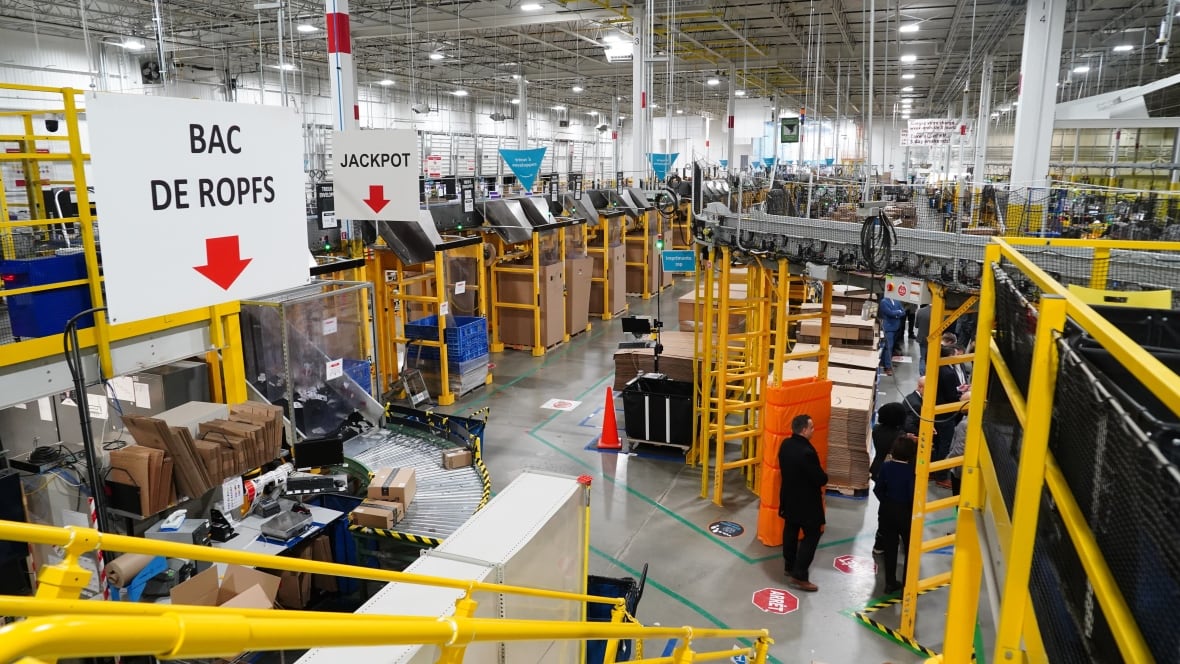The Hollywood Strike: What It Means For Film And Television's Future

Table of Contents
The Economic Impact of the Hollywood Strike
The Hollywood strike's economic repercussions are already being felt across the entertainment industry and beyond. The dual strikes represent a powerful force impacting various sectors.
Production Halts and Delays
The immediate impact is a near-total shutdown of major film and television production. This leads to:
- Delayed release dates: Highly anticipated movies and TV shows are facing significant delays, pushing back premiere dates and altering marketing strategies.
- Budget overruns: Production companies are incurring substantial costs due to idle crews, stalled projects, and the need to renegotiate contracts once the strike ends.
- Potential project cancellations: Some projects, particularly those with tight deadlines or limited budgets, may be canceled altogether, resulting in lost investments and opportunities.
- Ripple effect on related industries: The strike's impact extends far beyond the studios, affecting related industries like catering, transportation, and local economies reliant on film and television production. Estimates suggest billions of dollars in lost revenue for the US economy.
Impact on Streaming Services
Streaming services, which have become dominant forces in the entertainment landscape, are also severely impacted by the Hollywood strike. The lack of new content directly translates to:
- Lack of new content: Streaming platforms are relying heavily on their existing libraries, leading to a decline in new releases and a potentially less engaging user experience.
- Reliance on older programming: Viewers are likely to see a resurgence of older shows and movies, potentially leading to subscriber dissatisfaction.
- Potential for subscriber churn: Without fresh content to attract and retain viewers, streaming services risk losing subscribers, impacting their revenue streams. The increased reliance on reality TV and international content is a clear indication of this pressure.
Creative Control and the Future of Storytelling
The strikes are fueled by deep-seated concerns regarding fair compensation and creative control in the digital age.
The Writers' Fight for Fair Compensation and Creative Input
The WGA's demands center around several key issues:
- Residuals in the streaming era: Traditional methods of compensating writers for their work are outdated in the streaming world. The WGA seeks fair revenue sharing from streaming platforms to reflect the increased viewership and longevity of digital content.
- The role of AI in scriptwriting: The WGA is pushing back against the use of AI to generate scripts, fearing it will devalue human writers and their contributions. They want guarantees that AI will not be used to replace human creativity.
Actors' Concerns Regarding AI and Residuals
SAG-AFTRA's concerns echo those of the WGA, with a particular focus on the implications of AI for actors:
- The ethical implications of AI in acting: SAG-AFTRA is fighting against the use of AI to create digital likenesses of actors without their consent or compensation.
- Fair residuals from streaming platforms: Similar to writers, actors are seeking fairer compensation for their work on streaming platforms, which often offer significantly less than traditional television contracts.
The Long-Term Implications for Film and Television
The Hollywood strike could reshape the film and television industry in profound ways.
Potential for Industry Restructuring
The strike may trigger significant changes in the industry:
- Increased unionization: The strikes could embolden other workers in the entertainment industry to unionize and demand better working conditions and compensation.
- Negotiations leading to new contracts: The outcome of the strike negotiations could lead to new contracts that address the concerns of writers and actors, potentially setting a precedent for future agreements.
- Possible shift in production locations: Studios may consider shifting production to locations with more favorable labor laws and lower costs.
The Viewers' Experience
The strike will undoubtedly affect the viewers’ experience:
- Potential for longer wait times for new releases: Delays in production will likely lead to longer waits for new movies and TV shows.
- Possible impact on creativity due to rushed productions or reduced budgets: Post-strike, studios might rush productions to compensate for lost time, potentially affecting the quality of the final product.
- Changes in viewing habits: Viewers might adjust their consumption habits, seeking out alternative forms of entertainment while waiting for new releases.
Conclusion
The Hollywood strike of 2023 is a watershed moment, bringing significant economic, creative, and long-term consequences to the film and television industry. The ongoing dispute highlights the need for fair compensation structures, the ethical implications of AI, and the evolving power dynamic between studios and creatives. Understanding the intricacies of the Hollywood strike is crucial to comprehending the future of film and television. Stay informed about updates and support fair compensation for the creatives who bring us the entertainment we love. The ongoing impact of the Hollywood strike on the film and television industry continues to unfold, and its long-term effects remain to be seen. Staying informed about the negotiations and the overall impact on the entertainment industry is essential for anyone interested in the future of film and television.

Featured Posts
-
 Trumps Middle East Tour And Its Implications For The Arab Israeli Conflict
May 18, 2025
Trumps Middle East Tour And Its Implications For The Arab Israeli Conflict
May 18, 2025 -
 Addressing Bostons Relief Pitching Needs The Impact Of The Cardinals Trade
May 18, 2025
Addressing Bostons Relief Pitching Needs The Impact Of The Cardinals Trade
May 18, 2025 -
 Angels Vs Dodgers Trout And Moniaks Homers Overshadowed In Loss
May 18, 2025
Angels Vs Dodgers Trout And Moniaks Homers Overshadowed In Loss
May 18, 2025 -
 Dodgers Conforto Following Hernandezs Path To Success
May 18, 2025
Dodgers Conforto Following Hernandezs Path To Success
May 18, 2025 -
 Amazon Faces Union Challenge In Quebec Over Planned Warehouse Shutdowns
May 18, 2025
Amazon Faces Union Challenge In Quebec Over Planned Warehouse Shutdowns
May 18, 2025
Latest Posts
-
 2025 Nfl Draft Expert Assessment Of Patriots Future
May 18, 2025
2025 Nfl Draft Expert Assessment Of Patriots Future
May 18, 2025 -
 Stephen Miller A Contender For The Nsa Position
May 18, 2025
Stephen Miller A Contender For The Nsa Position
May 18, 2025 -
 Patriots Future Nfl Analyst Weighs In After 2025 Draft
May 18, 2025
Patriots Future Nfl Analyst Weighs In After 2025 Draft
May 18, 2025 -
 Nfl Analysts Bold Prediction Patriots Post 2025 Draft Status
May 18, 2025
Nfl Analysts Bold Prediction Patriots Post 2025 Draft Status
May 18, 2025 -
 The Stephen Miller Nsa Connection A Deep Dive
May 18, 2025
The Stephen Miller Nsa Connection A Deep Dive
May 18, 2025
